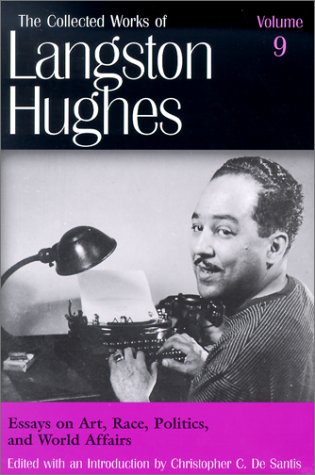

Most ebook files are in PDF format, so you can easily read them using various software such as Foxit Reader or directly on the Google Chrome browser.
Some ebook files are released by publishers in other formats such as .awz, .mobi, .epub, .fb2, etc. You may need to install specific software to read these formats on mobile/PC, such as Calibre.
Please read the tutorial at this link: https://ebookbell.com/faq
We offer FREE conversion to the popular formats you request; however, this may take some time. Therefore, right after payment, please email us, and we will try to provide the service as quickly as possible.
For some exceptional file formats or broken links (if any), please refrain from opening any disputes. Instead, email us first, and we will try to assist within a maximum of 6 hours.
EbookBell Team

4.8
44 reviewsAmong the most prolific of American writers, Langston Hughes gained international attention and acclaim in nearly every genre of writing. While scholars and general readers have enjoyed relatively easy access to most of his writings, Hughes's work in one genre "the essay" has gone largely unnoticed. From his radical pieces praising revolutionary socialist ideology in the 1930s to the more conservative, previously unpublished "Black Writers in a Troubled World," which he wrote a year before his death, Hughes used the essay form as a vehicle through which to comment on the contemporary issues he found most pressing at various stages of his career.
Hughes generated some of his most powerful critiques of economic and racial exploitation and oppression through his masterful essays. It was the essay as a literary form that allowed Hughes to document the essential contributions made by African Americans to literature, music, film, and theater, and to chronicle the immense difficulties black artists faced in gaining recognition, fair remuneration, and professional advancement for these contributions. Finally, it was in certain essays that Hughes most fully represented the unique and endearing persona of the blues-poet-in-exile.
Many of the essays and other pieces of short nonfiction included in this volume have long been out of print and will be new to most readers. Through them, Langston Hughes reaffirmed a belief in the political potential of African American writers that remained consistent throughout his forty-six-year professional writing career: "Ours is a social as well as a literary responsibility." Such a belief resounds everywhere in this volume "a true testament of a man committed to the capabilities of language to generate social awareness and, ultimately, to compel social change."